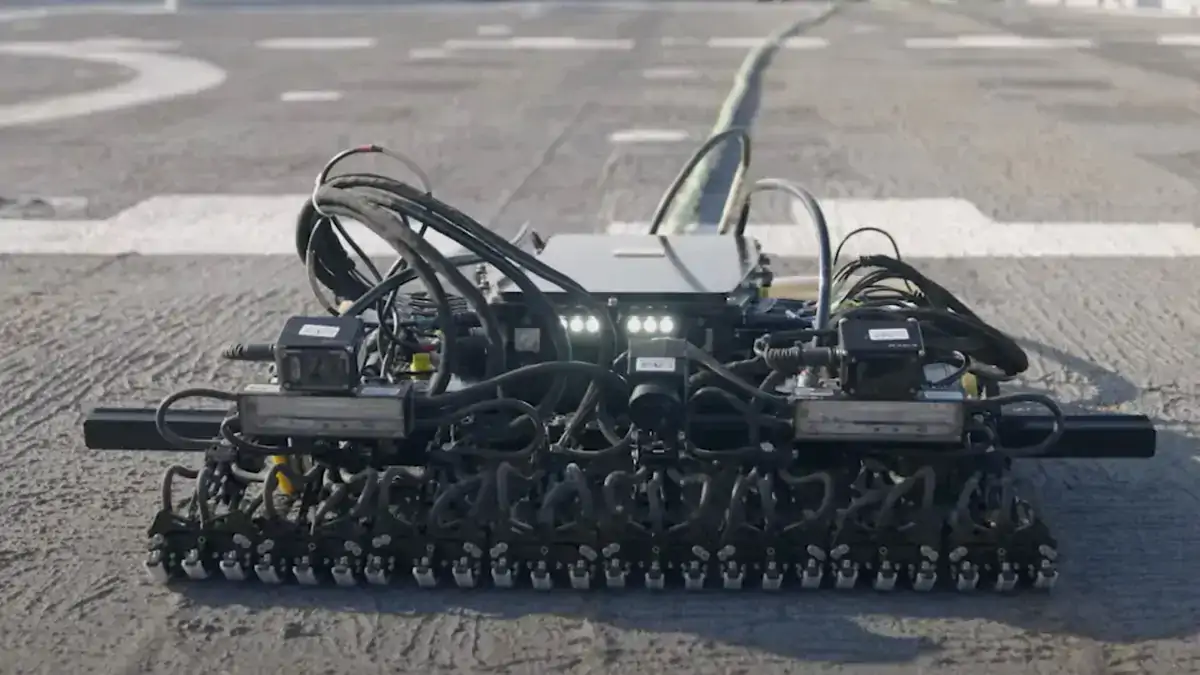Artificial intelligence-powered lizard-like robots could be a game-changer for armed forces, as the U.S. Navy, a defense expert venture capitalist, has revealed. In an exclusive interview with Fox News, Snowpoint Ventures co-founder Doug Philippone reveals his hopes for such technology.
"The critical thing of moving forward in the threats that we see around the world, we have to be able to make decisions really quickly and do something about it as fast as possible," Philippone explained to Fox News. In his opinion, one of the most fascinating prospects is a lizard-like robot that Gecko Robotics is developing.
This company, Philippone explained, has "invented these crazy robots that climb and scale [infrastructure] like a gecko lizard."
"Using advanced AI techniques, they can now detect exactly where these things will fail," he continued. "You can prevent catastrophes. You can do smart maintenance."
Wall-climbing robots to the rescue

Wall climbing robots are used for non-destructive testing inspections of tanks, boilers, pressure vessels, piping, and more, explains Gecko Robotics. These robots utilize specially designed sensor payloads to inspect wall thickness, pitting, and numerous forms of degradation.
"Our robots collect 1,000x more information with continuous data capture at speeds an average of 10x faster than previous methods," Gecko’s website boasts. "Using specially-designed sensor payloads, the robots can inspect wall thickness, pitting, and many other forms of degradation," they added.
The company has a select range of such robots, including its TOKA series. The TOKA line of robots is equipped with powerful magnetic wheels that enable them to inspect a wide range of carbon steel equipment efficiently and precisely, from power boilers to storage tanks and even container ships.
The robots are designed and rigorously tested to withstand harsh conditions, making them ready for deployment anywhere in the world, supported by our highly skilled operators.
Gecko also has the MONARCH series of robots. These come with compact and modular payloads that can navigate complex geometries and collect new data layers. MONARCH is ideal for inspecting and informing on the health of a new class of assets, such as aging concrete structures, including 1,450 hydropower plants, 92 nuclear plants, and 343,000 concrete bridges in the US alone.
Smarter maintenance with lizard-bots
The Navy, Phillippone explained to Fox, could benefit from Gecko as it would allow for more targeted maintenance instead of replacing entire sections that may not even require repair. In March of last year, the Navy gave the green light to utilize Gecko's wall-climbing robots and AI-powered software platform on their initial amphibious assault ship, as well as an extra Arleigh Burke-class destroyer.
The Navy hopes this will aid in creating digital models of the vessels, reducing maintenance cycle times and keeping ships from being taken out of service for drydock. "It ends up being really expensive for no particular reason," he said. "They don't actually know that that panel needs to be replaced," he added.
Philippone emphasized that while these devices are important, humans must still make the decisions. "All of this technology should assist humans in making decisions, not make the decisions for them," Philippone told Fox News. "I firmly believe that you need a human to do that to really encapsulate the risks of those decisions," he said.




 BlocksInform
BlocksInform










